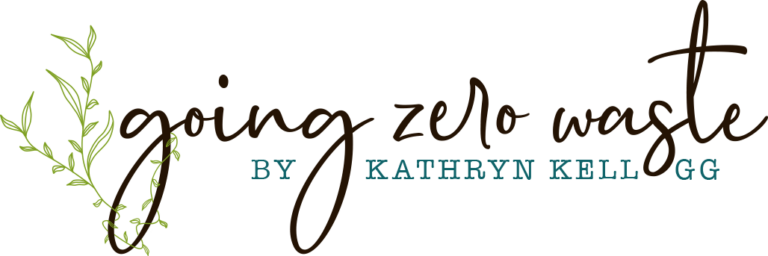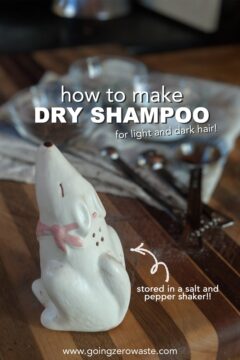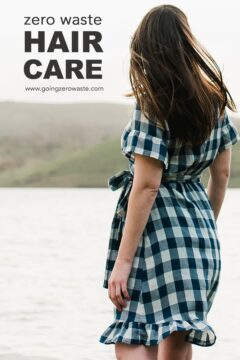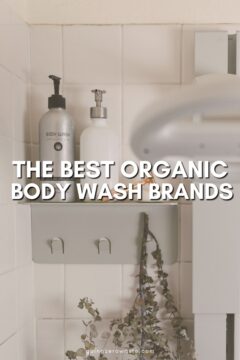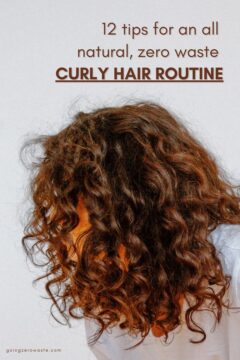12 Best Organic Shampoo Options for a Natural Hair Care Routine
Beauty
February 15, 2024 | Kathryn Kellogg
Last Updated on February 15, 2024
Did you know in the United States alone 550 million empty shampoo bottles are thrown out annually?
Only 5% of plastic gets recycled. Not to mention, where I live, squeezable plastic tubes cannot be recycled at all (and, of course, my favorite shampoo brand happened to package their products like this).
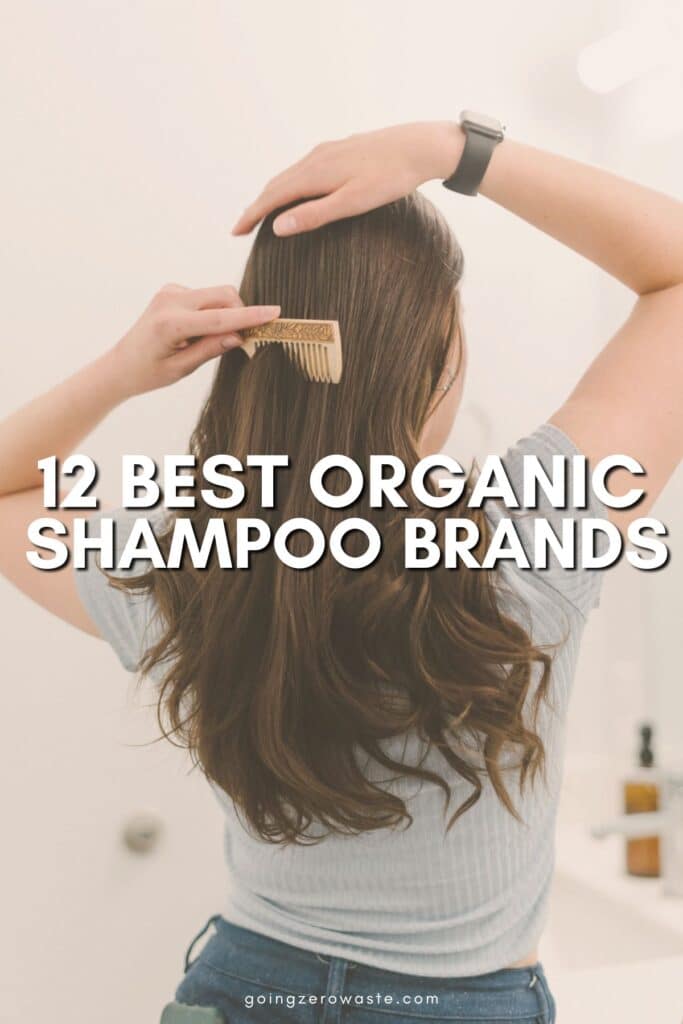
Some of the links below may be affiliate links. For more information please see my disclosure policy.
Before I went zero waste, I’d go through at least one shampoo and conditioner bottle every month. That’s about 24 plastic bottles of shampoo and conditioner every year, give or take. Now, I’ve switched over to refillable shampoo I get at my local refillery.
I also love making my own dry shampoo! I only need three simple ingredients and store it in a salt and pepper shaker that looks like my dog Nala (too cute).
Of course, packaging isn’t the only thing to take into consideration. Before purchasing shampoo, it’s important to look at the ingredients label.
Many conventional shampoos contain harsh ingredients like fragrance, sulfates, parabens and artificial dyes. Many of these ingredients are linked to health problems, like allergies and skin/scalp irritation.
Also, some ingredients may lead to waterway pollution when they go down the drain (more on this later).
So, if you’re able to, consider switching to organic shampoos that utilize natural ingredients. Here are my favorite organic shampoos that are also zero waste and sustainable.
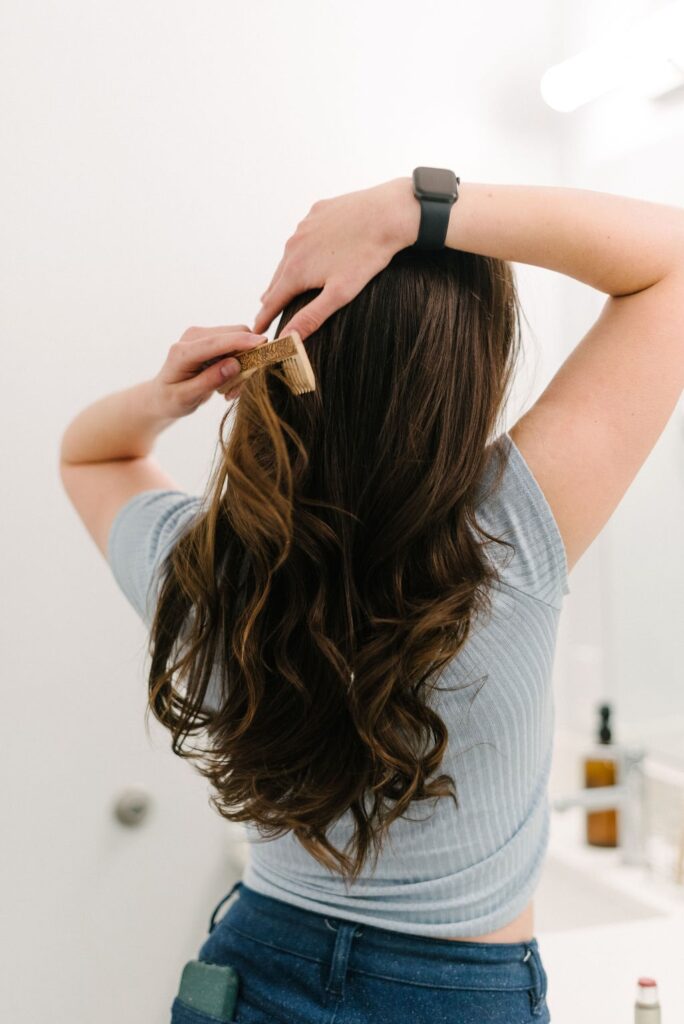
Table of Contents
are organic shampoos better for you?
Yes, organic shampoos are better for you because they don’t contain any harsh chemicals that may irritate your scalp.
You’ll want to look for shampoo that contain natural ingredients in their products.
If you don’t know what an ingredient is, I recommend looking it up in EWG’s Skin Deep database to better understand it. You can also look up your favorite product to see what score EWG gives it (1 being the best, 10 being the worst).
However, it’s important to note that even natural ingredients can be irritants, as everyone’s skin is unique. Please remember to read the ingredients carefully before purchasing to see if it’s a good match for you.
Also, when I refer to organic shampoos, I’m talking about shampoos that contain organic or natural ingredients.
A shampoo is considered natural when it includes organic and plant-based ingredients. Instead of synthetic ingredients, natural shampoos commonly contain essential oils, fruit extracts, botanicals, and certified-organic ingredients.
However, be aware that there are no industry-wide requirements for what constitutes a “natural” beauty product. Anyone can technically label something as “natural” – what’s important is reading and understanding the ingredients.
There are far and few shampoos that are organic certified. So, to create this list, I specifically chose brands that contain natural and organic ingredients.
Not all the ingredients in a shampoo need to be organic to make this list. In fact, many do not use certified organic ingredients, but rather, natural ingredients you can trust, like cocoa butter, argan oil, coconut oil, and essential oils.
As always, be sure to read the ingredients label on every individual product before making a purchase to see if it’s a good fit for you.
Additionally, while packaging isn’t everything, it’s a good idea to opt for organic shampoos that are plastic-free, refillable or made from recycled materials. All the brands listed below have thoughtful packaging that cuts back on waste.

which is the most healthy shampoo?
The most healthy shampoo contains no harsh chemicals or questionable ingredients, like parabens, synthetic dyes, or artificial fragrance.
Also, cosmetic products and ingredients are not subject to FDA premarket approval authority, with the exception of color additives. This includes shampoo, which means shampoo brands can technically put almost any ingredients they want into their products.
The problem with this is it puts a lot of stress on the consumer to avoid harmful ingredients, when it should be up to the manufacturers who make the product.
Here are some general ingredients you should consider avoiding in shampoo.
fragrance
According to EWG, the word “fragrance” or “parfum” on the product label represents an undisclosed mixture of various scent chemicals and ingredients used as fragrance dispersants, such as diethyl phthalate. Fragrance mixes have been associated with allergies, dermatitis, respiratory distress and potential effects on the reproductive system.
Look for shampoo brands that are fragrance-free, or use essential oil blends.
synthetic dyes
Many conventional shampoos are colored using synthetic dyes. Synthetic dyes are a broad group of ingredients that have been chemically manufactured to add vibrant colors to products like shampoo.
Many synthetic dyes are derived from non-renewable coal tar or petrochemicals, which contain carcinogens and can be eye, skin and lung irritants. These will often pop up as ‘Blue 1 Lake’, ‘FD&C Green No. 3’ and ‘Yellow 6 Lake’, etc. in the ingredients label.
Look for brands that use natural pigments to color their shampoo, or none at all.
parabens
Parabens are used to preserve the shelf life of many shampoos. But parabens may be connected to increased growth of breast cancer cells. They can also contribute to the die off of coral reefs, which are vital aquatic ecosystems. Look for brands that are paraben-free.
sulfates: a grey area
In regards to sulfates, a lot of people have mixed feelings on whether or not sulfates are good for your hair or the environment.
So first, lets define what they are: Sulfates are a class of cosmetic and household ingredients used for cleaning. Typically, you’ll see sulfates appear on the ingredients label as sodium lauryl sulfate, ammonium lauryl sulfate, and sodium saureth sulfate.
In shampoo, sulfates serve as the cleansing agent that makes shampoos suds. But, sulfates may also strip away too much moisture and leave the hair dry, sometimes even damaged. Certain sulfates have even been known to inflame the skin, eyes, and lungs.
In terms of the environment, sulfates may be transformed into toxic substances under certain conditions, which result in the loss of essential metal elements in aquatic plants. This can result in changes in the
Sulfate in relation to the environment may be transformed into the toxic substances under certain conditions, resulting in the loss of essential metal elements in aquatic plants. These can cause changes in the original water and ecosystems that rely on it.
If you have very greasy hair, sulfates may appeal to you. Looking for Sodium Coco Sulfate is also a potential solution, as this is naturally derived from coconut.
But if you’d like to play it safe, or have normal non-greasy hair, you may want to avoid sulfates altogether. I’ve included some sulfate-free options in the brands listed below.
which brand of organic shampoo is best?
All the options listed below are the best organic shampoo brands on the market. These brands use natural, plant derived ingredients.
I’ve rounded up a list of organic shampoo that get the Going Zero Waste seal of approval. All these brands wash your hair thoroughly without harsh chemicals. Many of these brands are also plastic-free and low waste.
I’ve gone ahead and highlighted some of my favorite features of each brand, but it isn’t an exhaustive list. Be sure to check out their websites for more information.
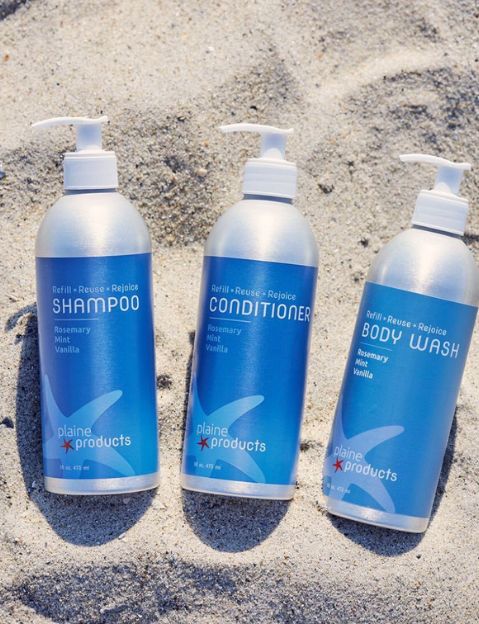
1. plaine products
- Natural, plant-based liquid shampoo
- Rosemary mint vanilla, citrus lavender, and unscented options
- Refillable + comes plastic-free aluminum bottles
- Vegan, cruelty-free, women owned, carbon neutral
- 100% plastic-free shipping
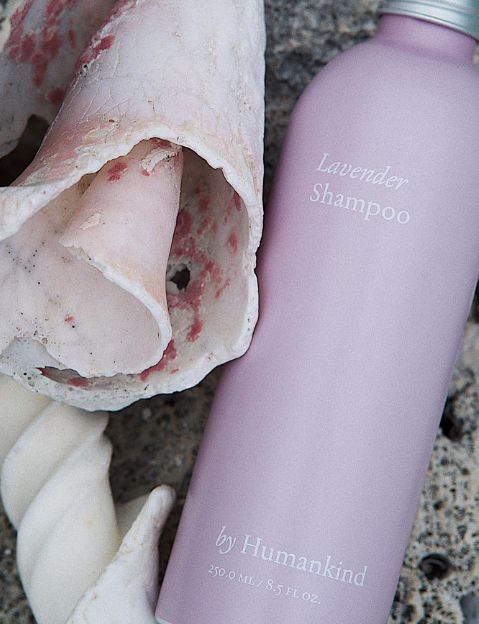
2. by humankind
- All-natural liquid shampoo
- Grapefruit + lavender scents
- Comes in an aluminum bottle
- Can order with or without a reusable pump to cut down on plastic
- Sulfate-free, silicone-free, vegan, and gluten-free
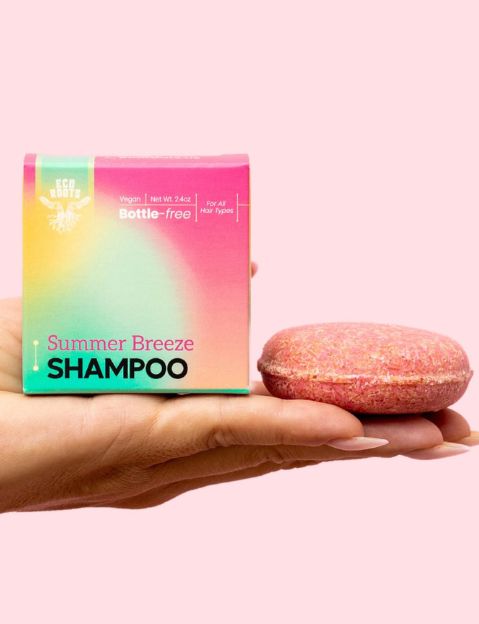
3. ecoroots
- All-natural shampoo bars
- Various scents available
- Vegan + cruelty-free
- Silicone Free, Phthalate-free & Paraben Free
- Plastic-free shipping
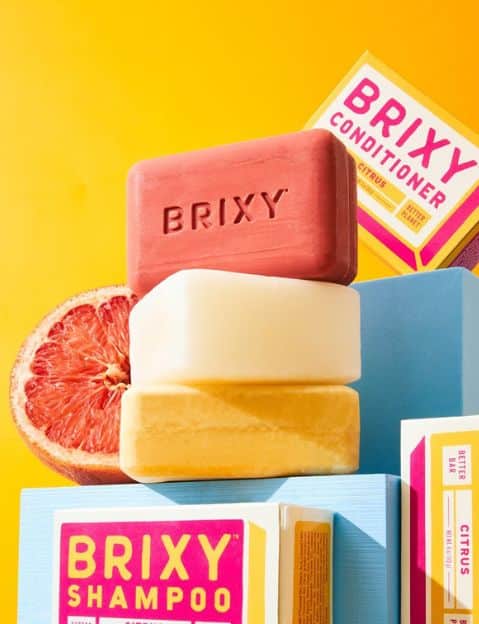
4. brixy
- Natural shampoo bar
- 3 scents available: citrus, mint eucalyptus and coconut vanilla
- Vegan and cruelty-free
- Free from palm oil, sulfates, silicones, phthalates, parabens, synthetic scents + colorants
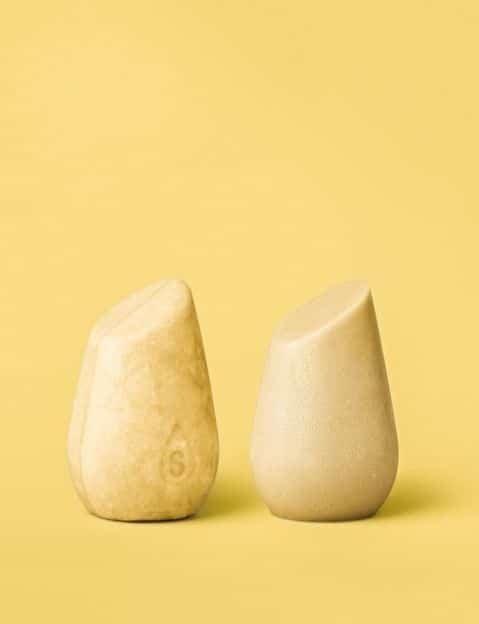
5. hibar
- All-natural shampoo bar
- 5 Types: Soothe, volumize, moisturize, maintain + curl
- No sulfates, parabens, phthalates, or silicones
- Shipped plastic free
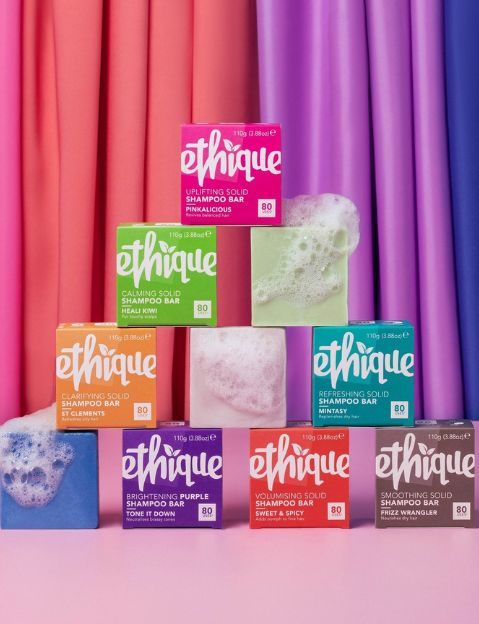
6. ethique
- Natural shampoo bar
- Various scents + types available
- Vegan + cruelty-free
- Plastic free + home compostable packaging
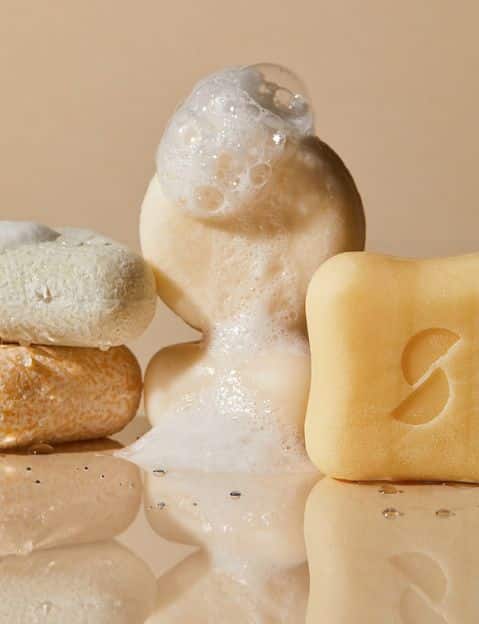
7. superzero
- Natural shampoo bars
- Various bars for different hair types such as thinning, damaged, or colored hair
- Free of sulfates, silicones, synthetic fragrances, phthalates, and artificial dyes
- Vegan + cruelty-free
- Plastic-free packaging
- Includes shampoo bar bag made from organic, unbleached cotton
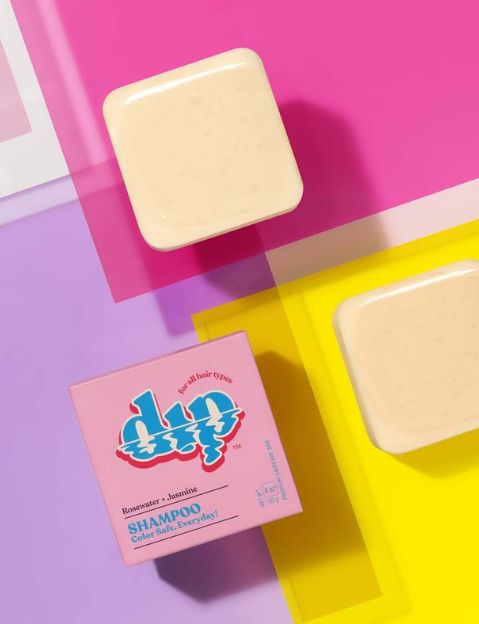
8. dips
- Natural shampoo bar
- 8 scents to choose from
- Made for all hair types + textures
- Mini dip versions available
- Plastic-free packaging
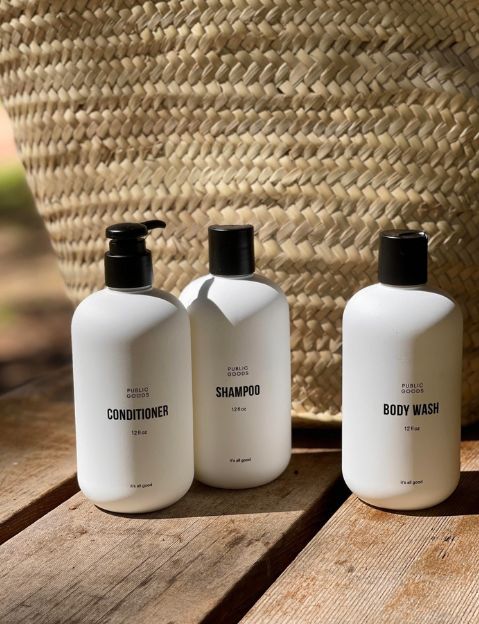
9. public goods
- Natural Liquid shampoo
- Made with organic essential oil blends
- Refillable
- Travel sized option
- Free from parabens, synthetic fragrance, sodium lauryl sulfates, phthalates
- Vegan + cruelty-free
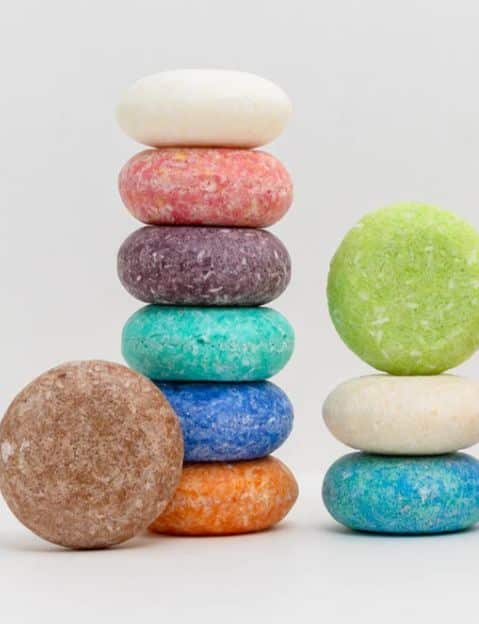
10. suds + co
- Natural shampoo bars
- 13 different scents to choose from
- Free of SLS, parabens, preservatives, silicones, GMOs, artificial colors, + fragrances
- Vegan + cruelty free
- Plastic-free packaging
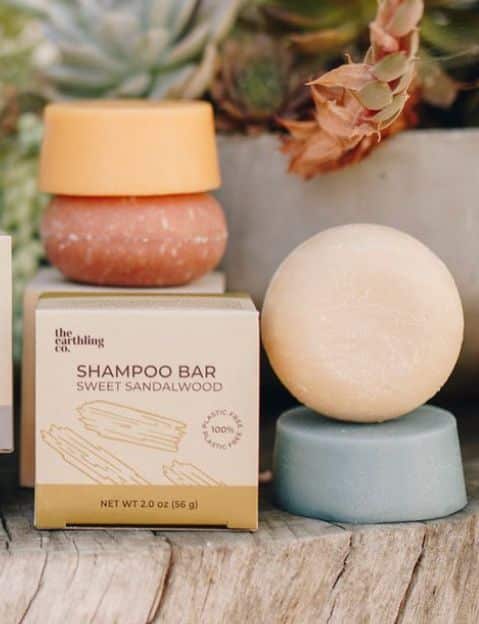
11. earthling co
- Natural shampoo bars made with certified organic ingredients
- 6 scents to choose from, plus unscented option
- Great for all hair types
- Free of SLS/SLES, parabens, phthalates, and silicones
- Vegan & cruelty-free
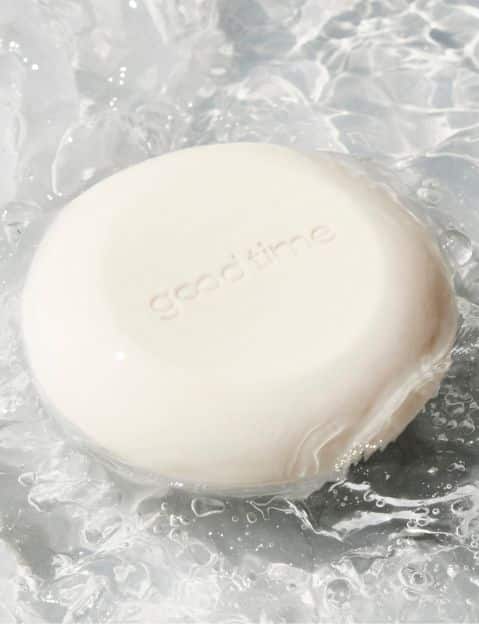
12. good time
- Natural shampoo bar
- Smells like bergamot, tangerine and juniper berry
- Great for all hair types
- No parabens, sulphates, or preservatives
- Vegan + cruelty-free
- Carbon neutral shipping
- 50% of profits to clean water initiatives
So, which of these organic shampoo brands would you try? Let me know in the comments!

